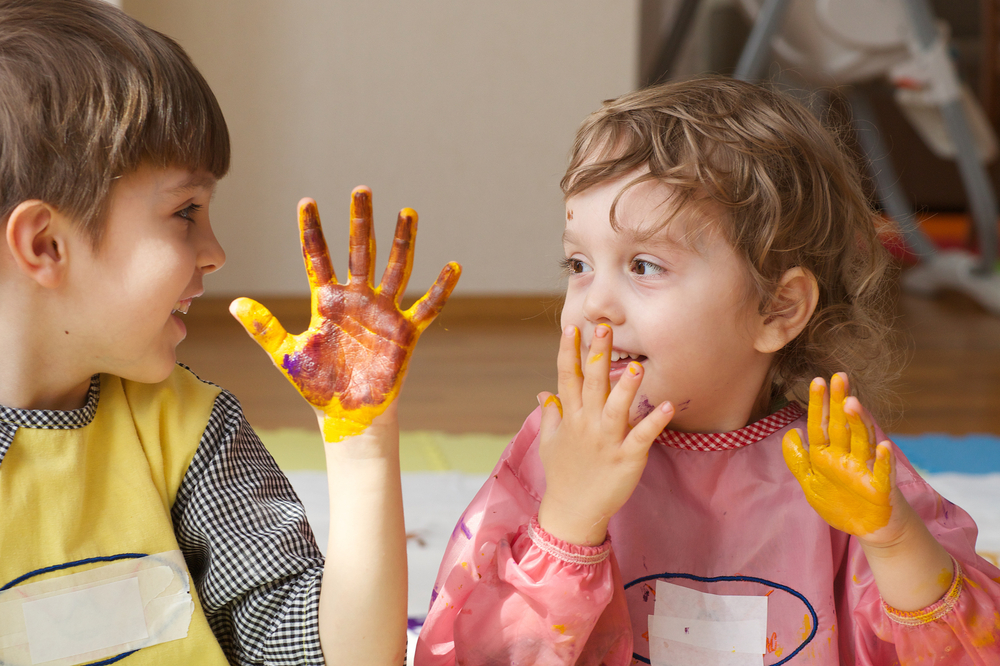Logical Reasoning Normal Math Worksheets for Ages 7-9
9 filtered results
-
From - To
Enhance your child's critical thinking with our "Logical Reasoning Normal Math Worksheets" for ages 7-9. These engaging, skill-building worksheets are designed to strengthen young minds by developing essential logical reasoning abilities. Each worksheet offers a variety of math problems that encourage analytical thinking, problem-solving, and decision-making skills. Whether it's pattern recognition, sequencing, or balancing equations, these activities are crafted to challenge and inspire children. Perfect for classroom use or at-home practice, our resources not only help improve math proficiency but also stimulate intellectual growth and confidence. Unlock your child’s potential with our comprehensive and enjoyable worksheets today!
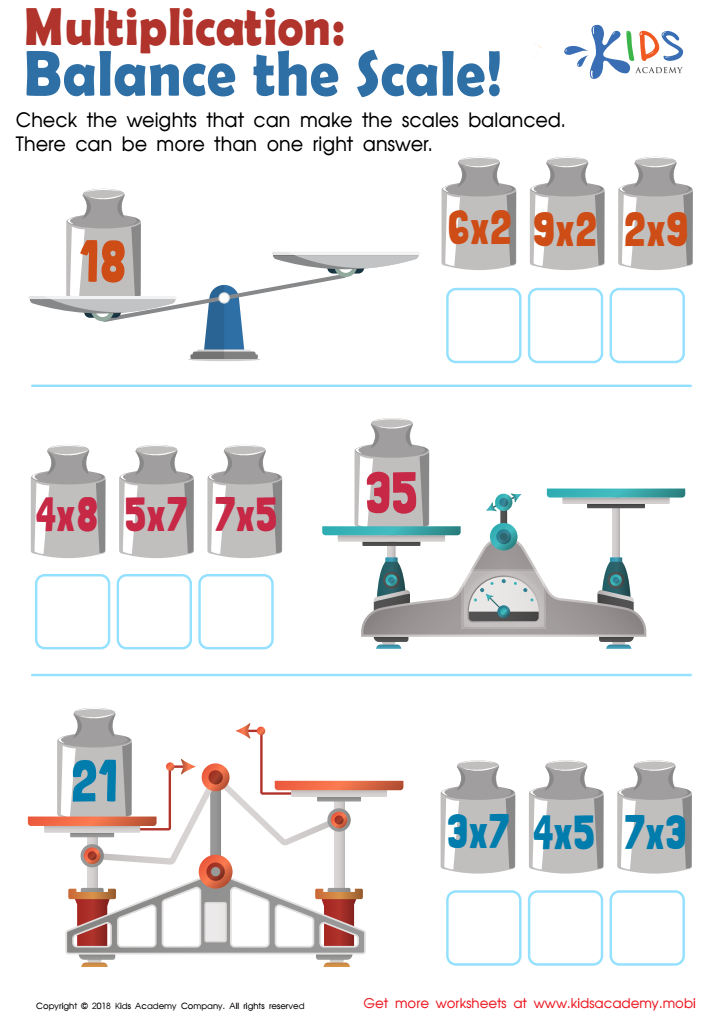

Balance the Scales Multiplication Worksheet
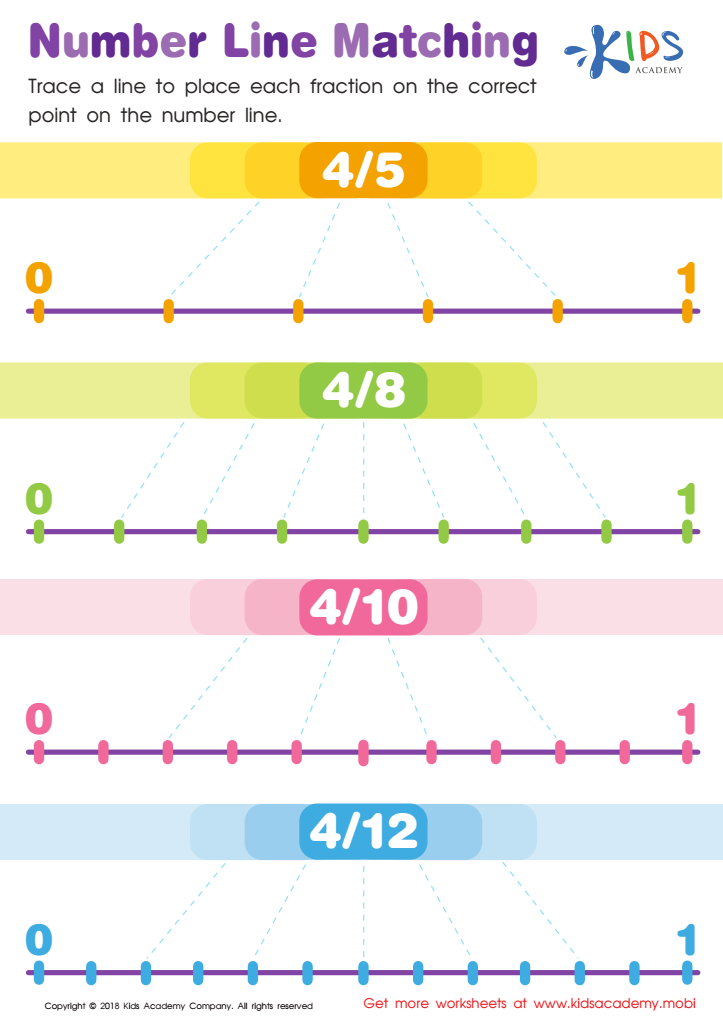

Number Line Matching Worksheet


Enrichment -2 Step Word Problems Worksheet
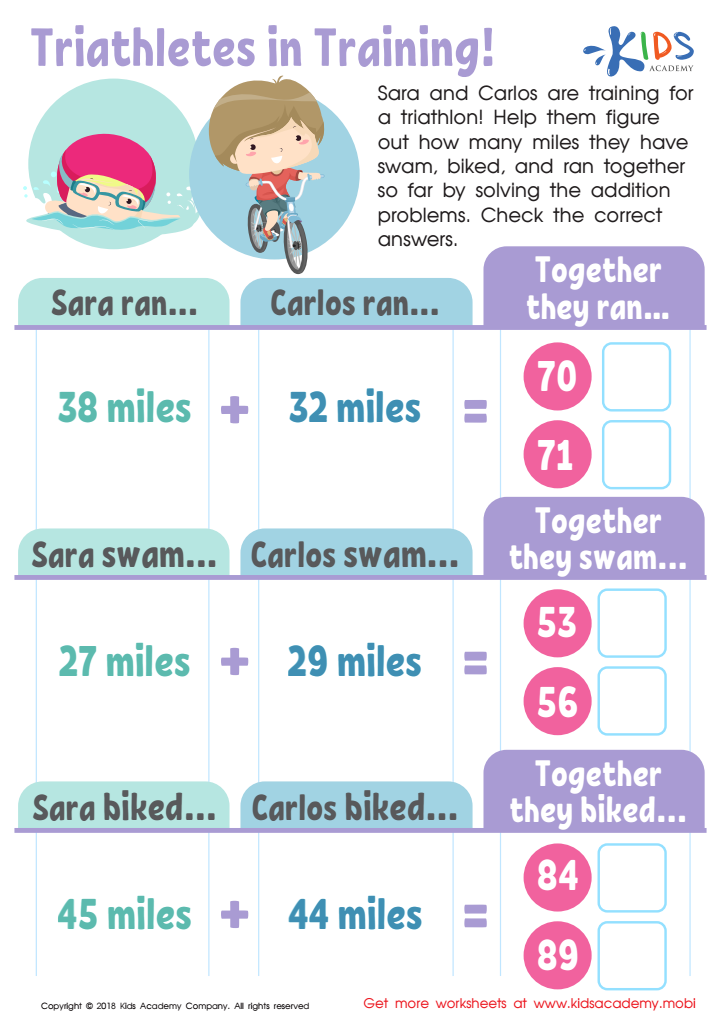

Triathletes in Training Worksheet
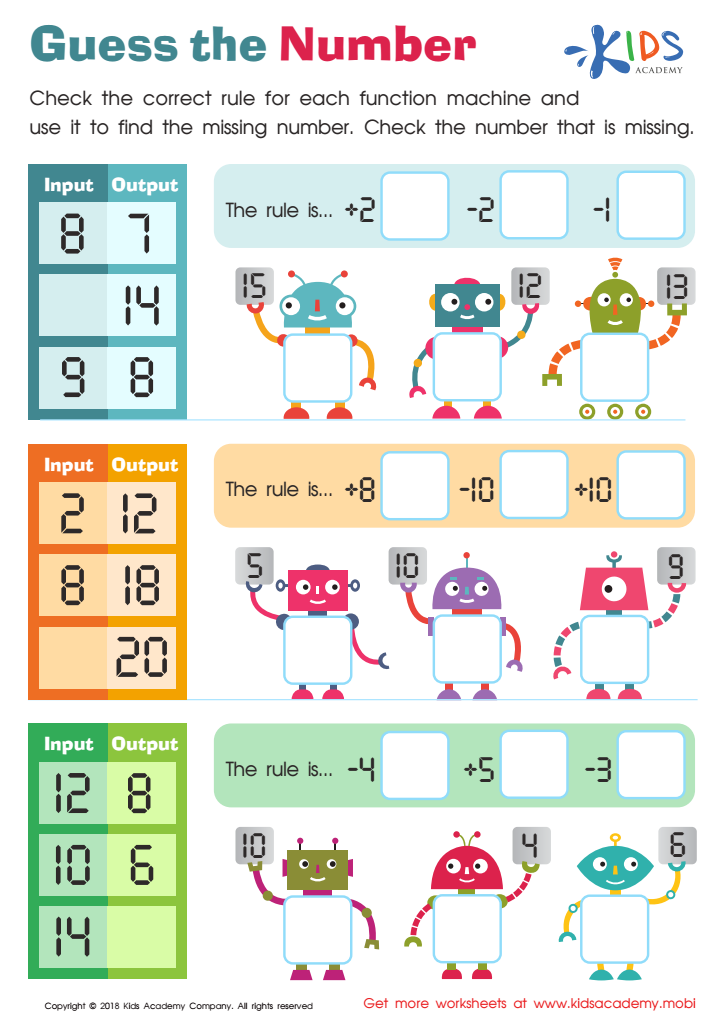

Guess the Number Worksheet


Solve the Problem: Trick–or–treating Worksheet


Word Problems: Assessment 2 Worksheet


Addition and Subtraction: Word Problems Worksheet
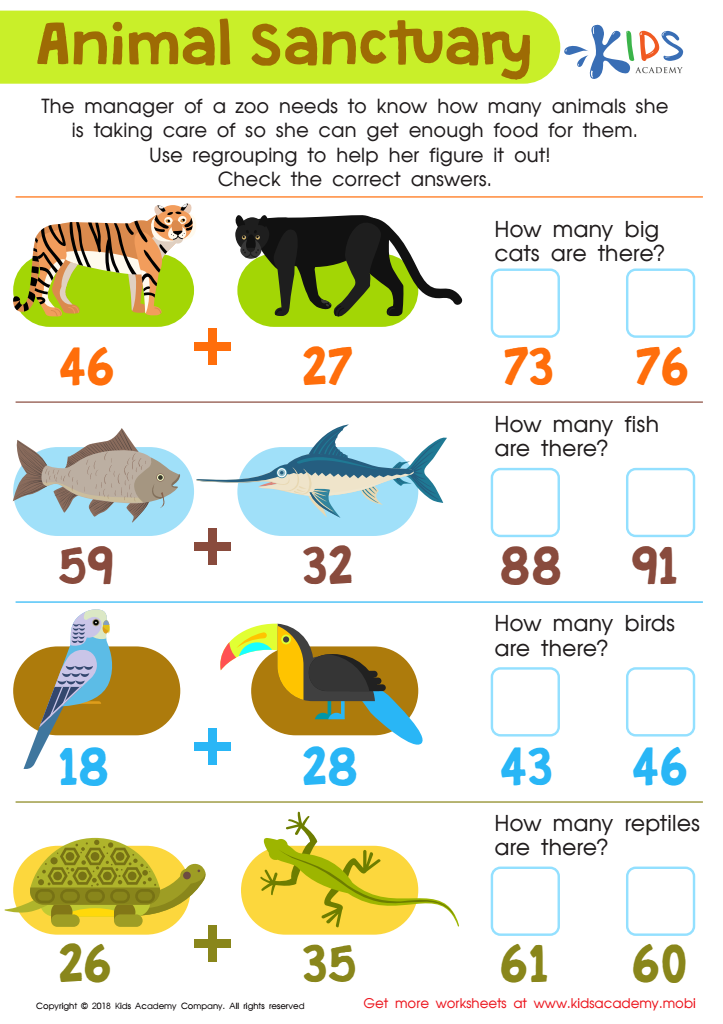

Animal Sanctuary Worksheet
Logical reasoning and basic math skills lay the foundation for a child's cognitive and academic development. For children aged 7-9, fostering these skills is crucial for several reasons.
First, logical reasoning encourages critical thinking. When children engage in activities that require them to think logically, they learn to make connections, identify patterns, and solve problems efficiently. This kind of thinking is not only essential for math but serves as a valuable skill across all disciplines, including science and reading comprehension.
Second, early exposure to math helps to demystify the subject. At this age, children begin to form lasting attitudes towards math. By making math relatable and fun through everyday examples like counting objects, understanding shapes, or solving simple puzzles, parents and teachers can help children build a positive relationship with the subject.
Third, these skills are intrinsic to real-world problem-solving. Whether it’s calculating change, telling time, or organizing data, logical reasoning and math are everywhere. Introducing these concepts early prepares children for daily tasks and future academic challenges.
Finally, fostering these skills boosts confidence. Mastery of logical and mathematical concepts can lead to a sense of achievement and boosted self-esteem, creating a resilient foundation for tackling more complex subjects later on.
In summary, logical reasoning and basic math are pivotal for cognitive growth, academic confidence, and practical life skills, making them indispensable in early education.
 Assign to My Students
Assign to My Students








